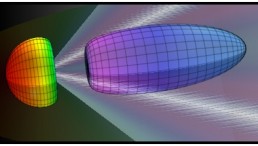Cancer is an extremely difficult set of diseases to treat, partially because it is part of us. It's not a radically different organism like bacteria that we can learn to analyze and kill. Any blunt approach to destroy cancer cells can also be damaging to our normal tissue. While things are improving, that is essentially the approach with chemotherapy. This results in chemotherapy having very severe and uncomfortable side effects, as the drug affects more than just the cancer cells.
Many groups are looking at ways to more specifically target cancer, to make treatments much more bearable. One of these methods is targeting cancer metabolism. A new pair of studies, a collaboration between the University of Southern California and scientists from Italy, examined fasting in combination with a new class of drugs. (via EurekaAlert)
It may sound a little strange, but previous research has shown that periodic fasting actually makes chemotherapy more effective as well. This works because a main difference between cancerous and normal cells is an insatiable appetite. Cancer cells are constantly trying to grow and divide. and require a constant supply of energy. Due to damaged or mutated DNA, they are also usually less flexible in what they can metabolize.
So they rely heavily on easy to process glucose from the blood. Periodic fasting essentially starve the cancer cells and forces them to switch to a different metabolic pathway. This backup pathway relies on a type of enzyme called a kinase, and as a side effect it produces free radicals. You may have heard of the term free radicals, but they're essentially just highly reactive byproducts that are a result of cellular metabolism.
All metabolism produces these byproducts, and normal cells can cope with this to a certain extent. Cancer cells on the other hand are much more sensitive to the damage that free radicals can cause. Eventually this damage can build up so much that it kills the cancer.
What this research mainly looked at was combining fasting with a kinase inhibitor. They looked at mouse models of breast, colorectal, and lung cancer. This combination therapy effectively cut off the cancer's main source of nutrients while also interfering with their backup mechanism.
These inhibitors are already approved as an anticancer treatment, and while they do have side effects still, they are less severe than chemotherapy. They're also usually less effective than chemotherapy, but the hope is that combining it with fasting could make it just as or even more effective. Since all of the components of this treatment are already approved, it will hopefully be not long before human testing can begin.












![Sat-Nav in Space: Best Route Between Two Worlds Calculated Using 'Knot Theory' [Study]](https://1721181113.rsc.cdn77.org/data/thumbs/full/53194/258/146/50/40/sat-nav-in-space-best-route-between-two-worlds-calculated-using-knot-theory-study.png)

